Proust's Total Recall
- Published
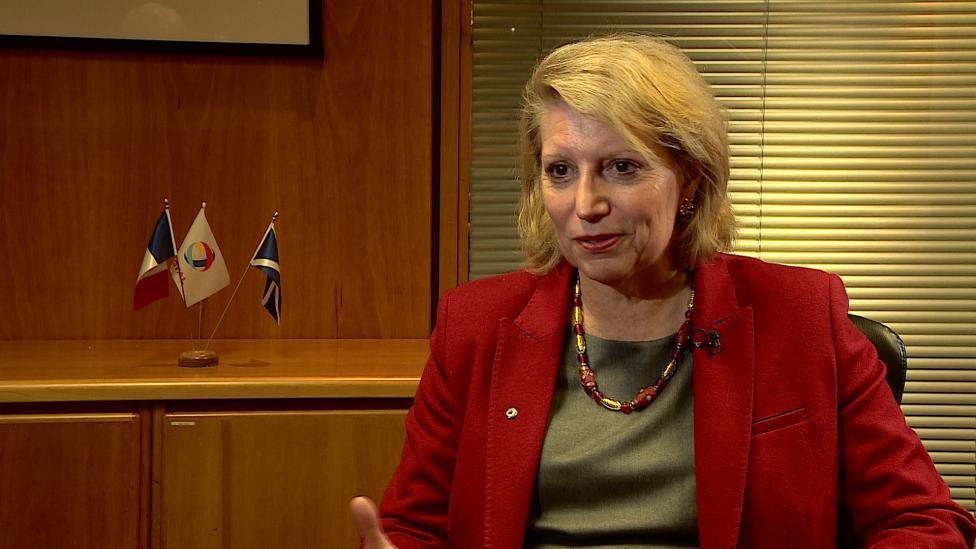
Elisabeth Proust is the new boss of Total's UK exploration and production arm
The oil industry stereotype is not renowned for its gender balance or appreciation of women's distinctive contributions. But the new boss at Total (Exploration and Production) UK is changing that.
Elisabeth Proust (it's pronounced Proost) is a very senior figure in the French oil giant, and recognised outside it with the French state's highly prestigious Legion d'Honneur.
She previously worked in Paris and The Hague, seeking out investment opportunities. That included Russia and India, for instance - not oil regions for the faint-hearted.
Her last two postings were in charge of the company's operations in Indonesia and then Nigeria. Again, very tough gigs.
Moving from Africa to Aberdeen at the end of last year means she has yet to see much daylight or feel much warmth from her new billet.
She brings, she says, "energy, determination. I am a... kind fighter". There's a better Scots word for that than French: bonnie fechter.
First gas
She has started on an up. This week marked 'first gas' from the Total-operated Laggan-Tormore reserves west of Shetland.
That makes Total the biggest operator of oil and gas production in the UK offshore sector with the second biggest share of production. It is also an early mover in winning licences for in Britain's onshore gas fracking potential, though that is viewed by the boss as being on the distant horizon.
With the gas price half of what it was last year, and with the project a long way over budget and behind schedule, the company's UK boss now has to learn the lessons (including the revelation that the west of Shetland weather is worse than expected) and ensure it delivers a return to HQ in Paris.
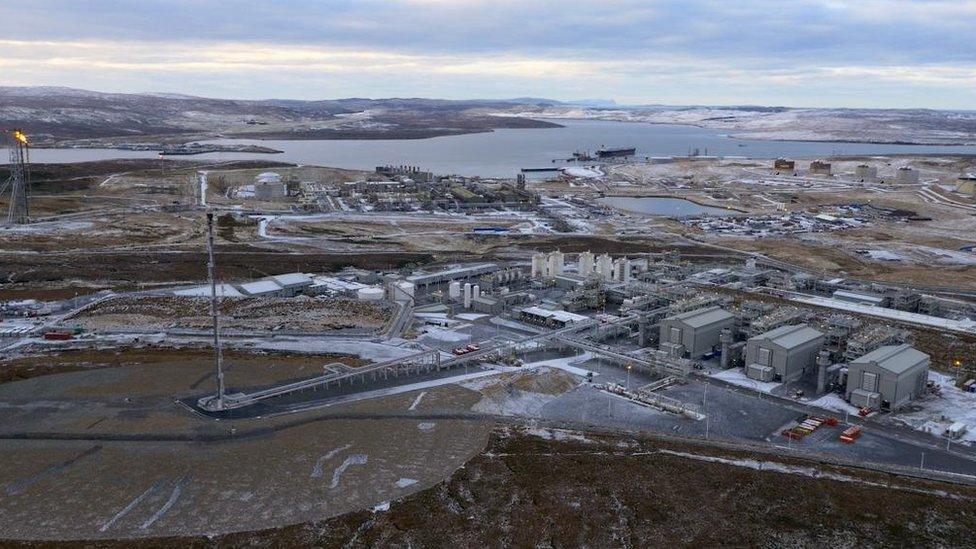
Total said the Laggan and Tormore fields will produce 90,000 barrels of oil equivalent per day
Investment cuts
The UK offshore sector is mature, investment has been cut back sharply, costs are being pared ferociously, and it has to compete with other so-called 'hydrocarbon basins' around the world, which can offer Total more attractive prospects.
Its full-year results, this year, showed that the upstream division is having investment funds cut further, in common with the other majors.
On sales of $165 billion, down by 30%, upstream production saw profits plunge 55%, while refining and chemicals profits were up by 96%, making Total more money than upstream.
The company warned last year that it was likely to shed hundreds of staff, but it did so by retirement and reductions of contractors, so no redundancies have been necessary, yet. "For the time being, we can avoid them," says the new boss.
Elite engineers
Now aged 59, Proust trained as an engineer in the late 1970s, when women made up no more than 15% of the elite technical school.
"My interest was hydro-dynamics," she told me in her fluent, heavily accented English, at Total UK's Aberdeen head office. "I wanted to build ships."
However, there was a growing interest in hydro-dynamics as the oil and gas industry went ever more subsea in the 1980s.
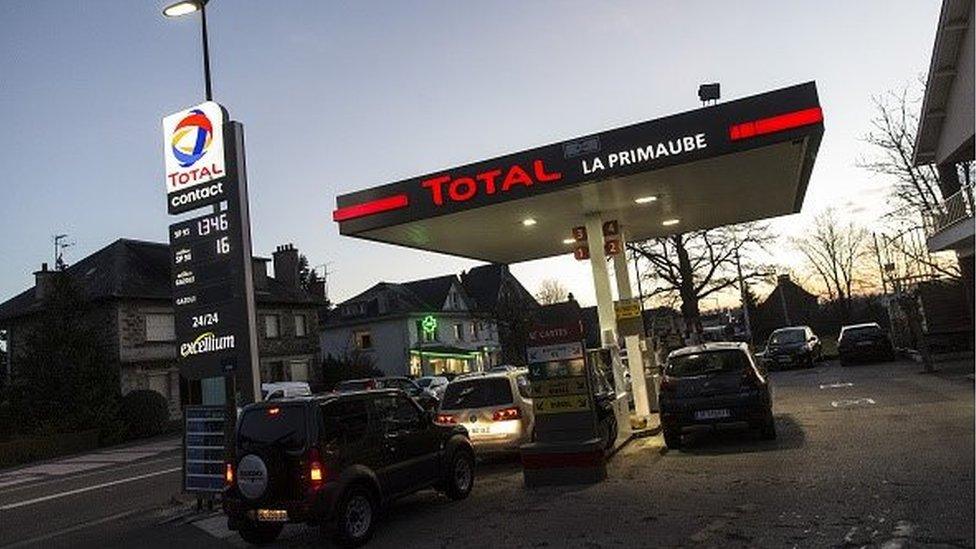
French firm Total is a major player in the oil and gas industry
Proust was recruited into offshore drilling with the industry roughnecks, rising to become a drilling supervisor in 900 metres of ocean depth off the coast of Brazil.
She disagrees with the stereotype of this being macho and a hard industry for women. If you have the competence, you can get on, she says.
And part of the Total culture, particularly after it took over French state-owned Elf Aquitaine, is to hang on to people it values, and take them right through their careers. So it was with her.
But it was when women reached middle management ranks that gender problems set in, says Proust.
"The woman as [job] candidate has to over-perform to be selected," says Proust, but not so in the field: "It is more difficult offshore to ask a woman to over-perform."
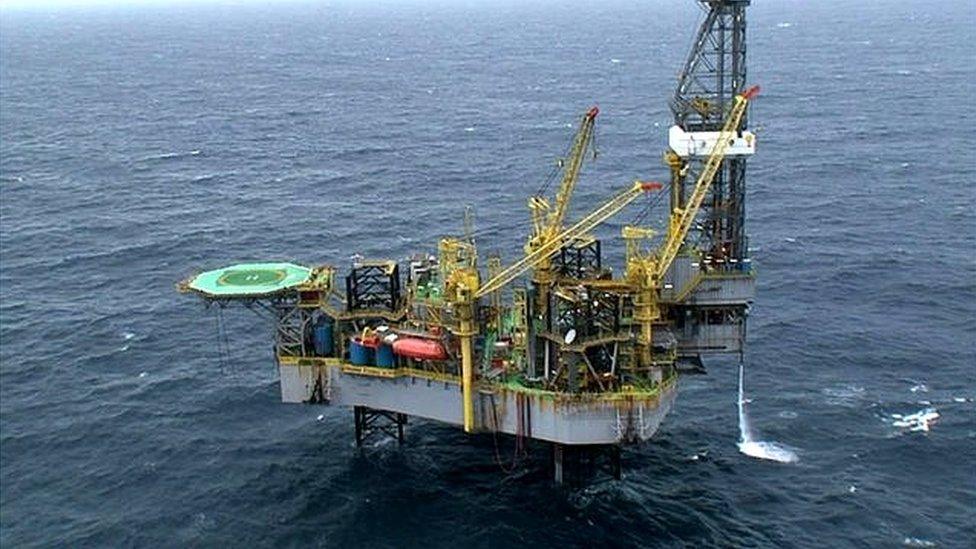
Proust built up her oil career offshore, working as a supervisor on rigs off the coast of Brazil
'Bright ladies'
A diversity strategy was adopted by Total in 2004 with Elisabeth Proust on the case. It increased the percentage of women recruits from 10 to 30% quite quickly.
But there was a snag: "We had a tendency to promote the bright ladies very fast, which was not good, because then we created an empty space.
"It is now better. What has really improved diversity is to measure, to create KPIs [key performance indicators] - not quotas."
These are across all 900 branches of Total: "Each affiliate has to indicate how many women they have recruited, how many in each category of technicians, and at different levels of management."
Setting diversity as a key indicator of success brought progress: "You need to force the people a little bit to put attention on it".
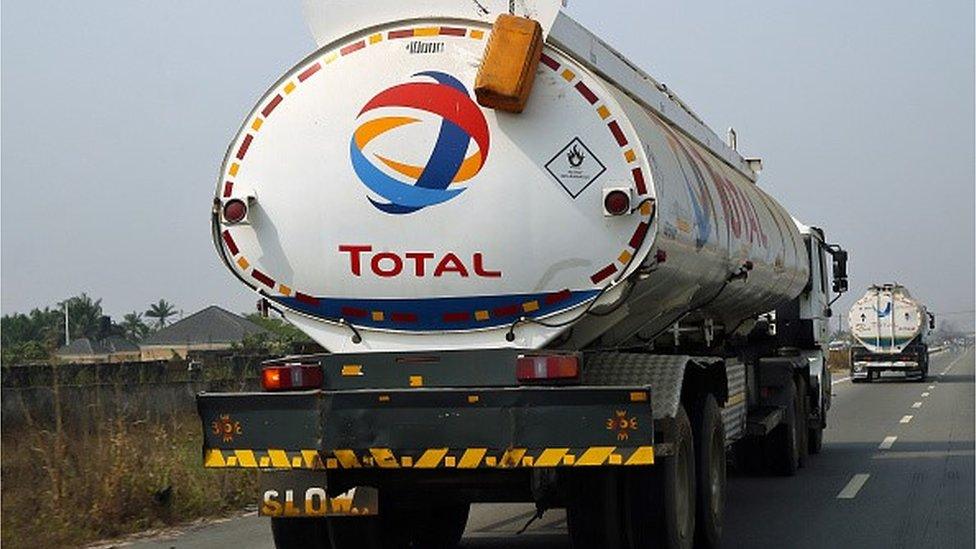
Total adopted a diversity strategy in 2004 to get more women into its workplaces
Career ladder
For all its dirty reputation and looming constraints on fossil fuel burning, oil remains an industry for young people, Proust reassures, and she has a concern to get more girls into the study of science and engineering.
Frequent moves up the career ladder and around the world don't appear to have constrained her family life. She has five offspring.
Is there a secret to balancing a stellar career and a big family?
She laughs. "Find the right husband."
You can hear Elisabeth Proust interviewed on Business Scotland, this week covering 'Oil, Gas and Gold' with Gillian Marles - available on BBC iPlayer or by free download
- Published14 February 2016

- Published11 February 2016
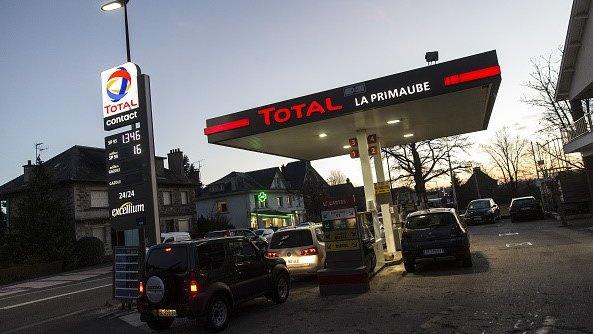
- Published8 February 2016

- Published8 February 2016